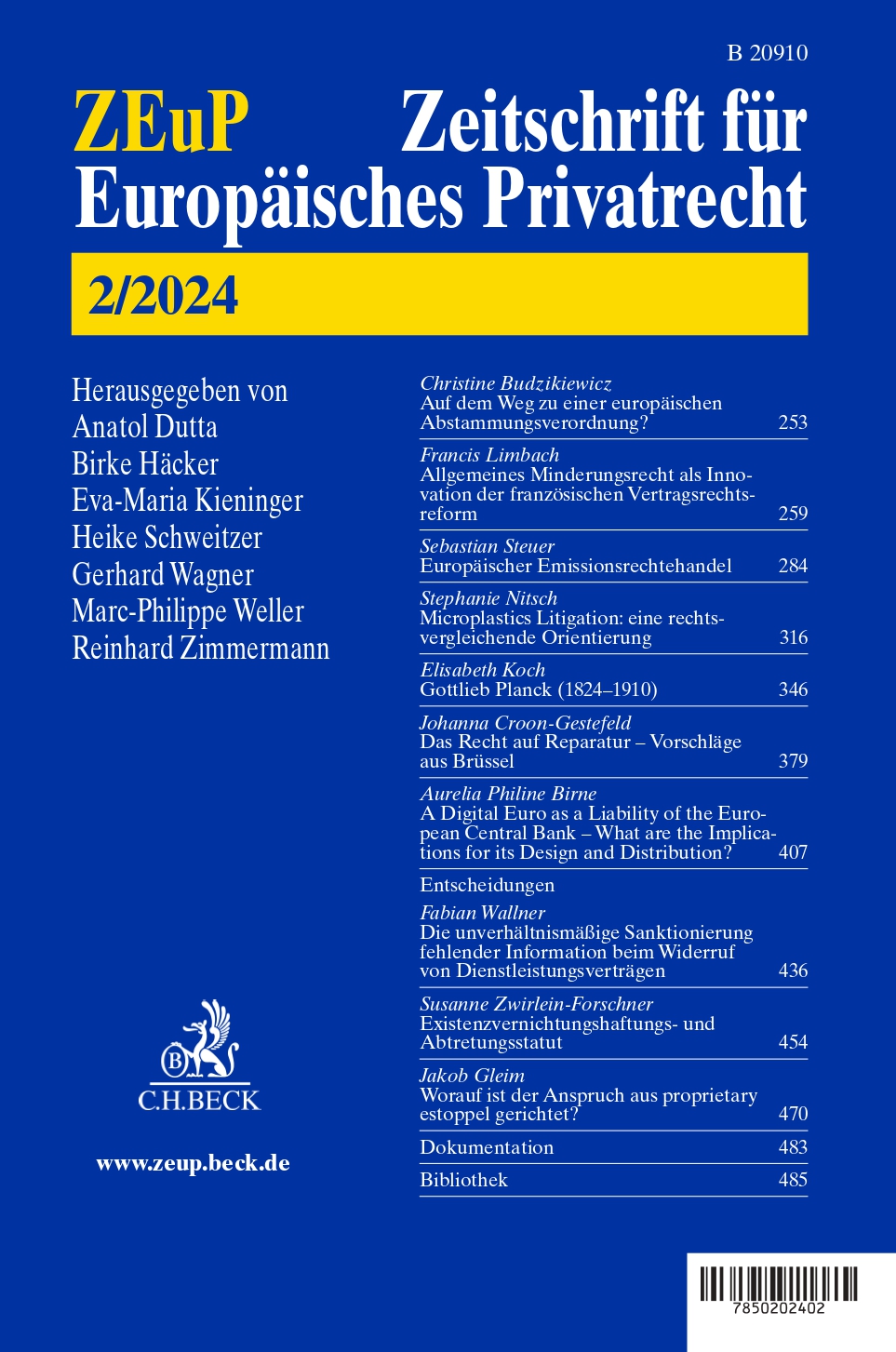ZEuP – Zeitschrift für Europäisches Privatrecht 2/2024
Issue 2/2024 of ZEuP – Zeitschrift für Europäisches Privatrecht has just been published. It includes contributions on EU private law, comparative law, legal history, uniform law, and private international law. The full table of content can be accessed here.
The following contributions might be of particular interest for the readers of this blog:
- Auf dem Weg zu einer europäischen Abstammungsverordnung? – Licht und Schatten im Vorschlag der Europäischen Kommission
Editorial by Christine Budzikiewicz on the Commission Proposal for a EU Regulation on Parenthood and the Creation of a European Certificate of Parenthood - Europäischer Emissionsrechtehandel – Eine Momentaufnahme nach der Reform durch das „Fit for 55“-Paket
Sebastian Steuer on European emissions trading: Carbon pricing according to the “cap and trade” principle plays a key role in European climate policy. As part of the “Fit for 55” package, the Emissions Trading Directive has, once again, undergone comprehensive revisions and has been substantially toughened in certain respects. This article gives a basic overview of the current state of European emissions trading after the recent changes. It explores the chief components of the Emissions Trading Directive, highlights the economic differences between quantity- and price-based regulation, and discusses the interplay of the EU emissions trading system with international and German climate policy. - Microplastics Litigation: eine rechtsvergleichende Orientierung
Stephanie Nitsch on Microplastics Litigation: The present paper provides a comparative law analysis of liability for microplastics pollution with a special focus on product liability as well as liability due to deliberate or negligent breaches of statutory duties or duties of care. - Bundesgerichtshof, 18 April 2023, II ZR 184/21
Susanne Zwirlein-Forschner discusses a decision of the German Federal Court of Justice on the law applicable to liability due to economically destructive actions and to the assignment of claims.


